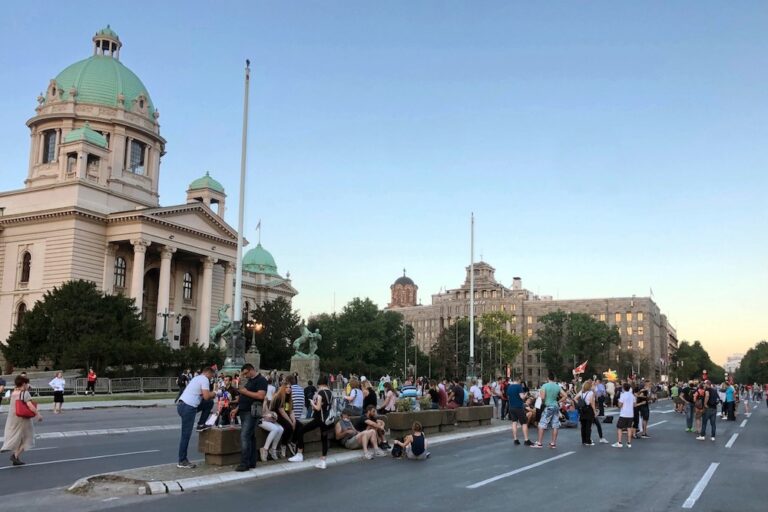(RSF/IFEX) – In a letter to Goran Matic, the federal minister of information and telecommunications, RSF protested the jamming of radio programmes broadcast by the opposition station Radio Jasenica and the private station Radio Globus. “As the 24 September elections near, Yugoslav federal authorities are exercising a policy of increasing repression against independent media,” said […]
(RSF/IFEX) – In a letter to Goran Matic, the federal minister of information and telecommunications, RSF protested the jamming of radio programmes broadcast by the opposition station Radio Jasenica and the private station Radio Globus. “As the 24 September elections near, Yugoslav federal authorities are exercising a policy of increasing repression against independent media,” said RSF Secretary-General Robert Ménard. The organisation asked the minister to take the necessary measures to ensure that the two radio stations can continue the unhindered broadcast of their programmes. Ménard added: “We denounce the use of jamming by the Serbian authorities against non-governmental radio and television stations, which prevents a pluralism of information.”
According to information collected by RSF, the signal of Radio Jasenica, a station close to the opposition municipality of Smederevska Palanka (south-east of Belgrade), which broadcasts on the 88.3 MHz frequency, was jammed during the night of 16 August 2000. Since then, people in the city and surrounding areas can hear the programmes of the official station Radio Belgrade on this frequency. According to Radio Jasenica’s technicians, a new transmitter installed close to the city allegedly broadcasts state radio programmes on their frequency. Zoran Stanosevic, Radio Jasenica’s editor-in-chief, immediately requested that the federal minister of information and telecommunications and the Smederevska Palanka police launch an investigation. As of 23 August, he had still not received a response to his request. Radio Jasenica has existed for thirty years and holds all the necessary permits to broadcast its programmes.
Furthermore, the signal of Radio Globus, which broadcasts on the 102.5 MHz frequency in Kraljevo (central Serbia), was jammed on 22 August. The federal minister of information and telecommunications had granted a licence to Biser, a music station, to transmit on the 102.6 MHz frequency in the same city. The new station jammed Radio Globus’ programmes, which have been inaudible ever since.
Finally, RSF recalled that the signal of the municipal radiotelevision station RTV Pancevo, the last independent station to broadcast into Belgrade, was jammed on 17 May. The broadcast of programmes was interrupted at 7:30 p.m. (local time), just as the station was starting a live rebroadcast of demonstrations organised by the opposition against the closure of Studio B, the Belgrade municipal television station. Revolutionary and popular songs were then heard on the air instead (see IFEX alerts of 22 and 18 May 2000).


